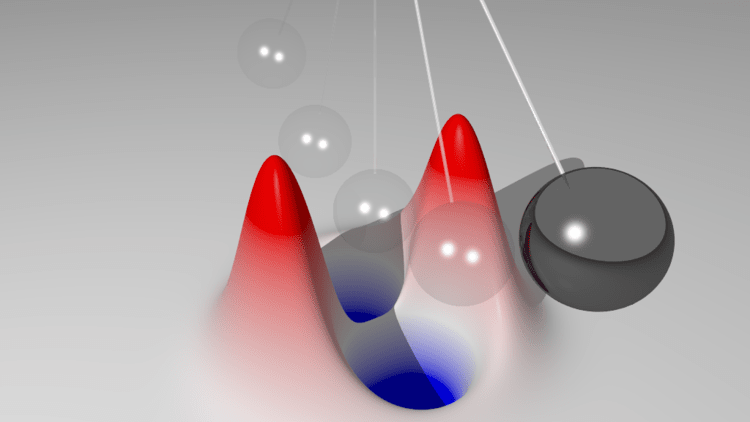Jul 3 2019
Humans have always been in pursuit of increasing their understanding of the world via accurate measurement of light and matter. Nowadays, quantum sensors accomplish very accurate results.
 (Image credit: ©Fabian Wolf/PTB)
(Image credit: ©Fabian Wolf/PTB)
The development of atomic clocks is an example of this, which are estimated to neither gain nor lose more than a second in thirty billion years. Gravitational waves were identified via quantum sensors as well, in this case by using optical interferometers.
Quantum sensors can realize sensitivities that are unachievable according to the laws of conventional physics that dictate daily life. Those levels of sensitivity can only be achieved if one goes into the world of quantum mechanics with its attractive properties — such as the occurrence of superposition, where objects can be in two places at the same time and where an atom can have two varying levels of energy at once.
Both producing and regulating such non-classical states is very complicated. Owing to the high level of sensitivity required, these measurements are susceptible to external interference. Moreover, non-classical states must be adjusted to a particular measurement parameter. "Unfortunately, this often results in increased inaccuracy regarding other relevant measurement parameters", says Fabian Wolf, explaining the challenge. This concept is closely associated with Heisenberg's uncertainty principle. Wolf is part of a team of scientists from Leibniz University Hannover, Physikalisch-Technische Bundesanstalt in Braunschweig, and the National Institute of Optics in Florence. The team presented a technique based on a non-classical state altered to two measurement parameters at the same time.
The experiment can be envisaged as the quantum mechanical version of a standard pendulum. Here, the adapted measurement parameters are the pendulum's highest displacement (amplitude) and the number of oscillations per second (frequency). The pendulum includes a single magnesium ion fixed into an "ion trap".
Through laser light interactions, the scientists cooled the magnesium ion to the ground state of a quantum mechanical system, the coldest attainable state. From there, they produced a "Fock state" of the motion and oscillated the single atom pendulum with an external force. This enabled them to compute frequency and amplitude with a sensitivity unparalleled by a conventional pendulum. Contrary to earlier experiments, this was the case for both measurement parameters without needing to alter the non-classical state.
Using this new method, the researchers cut the measurement time by half while the resolution stayed constant or doubled the resolution with a constant measurement time. High resolution is especially vital for spectroscopy methods based on altering the state of motion. In this particular scenario, scientists plan to examine individual molecular ions via laser irradiation so as to trigger molecular movement. The new process will enable them to examine the state of the molecule before it is disturbed by very strong laser irradiation.
For example, precision measurements of molecules could reveal interactions between conventional and dark matter, which would be a great contribution to solving one of the biggest mysteries in contemporary physics.
Fabian Wolf, Scientist, Leibniz University
The measurement theory, which scientists showed for the first time, could also enhance the resolution in optical interferometers such as gravitational wave detectors — thus providing more detailed insights into the dawn of the universe.
The research originated from the joint research center "DQ-mat — Designed Quantum States of Matter", which is sponsored by the German Research Foundation (DFG). The scientists have recently published their findings in the scientific journal Nature Communications.